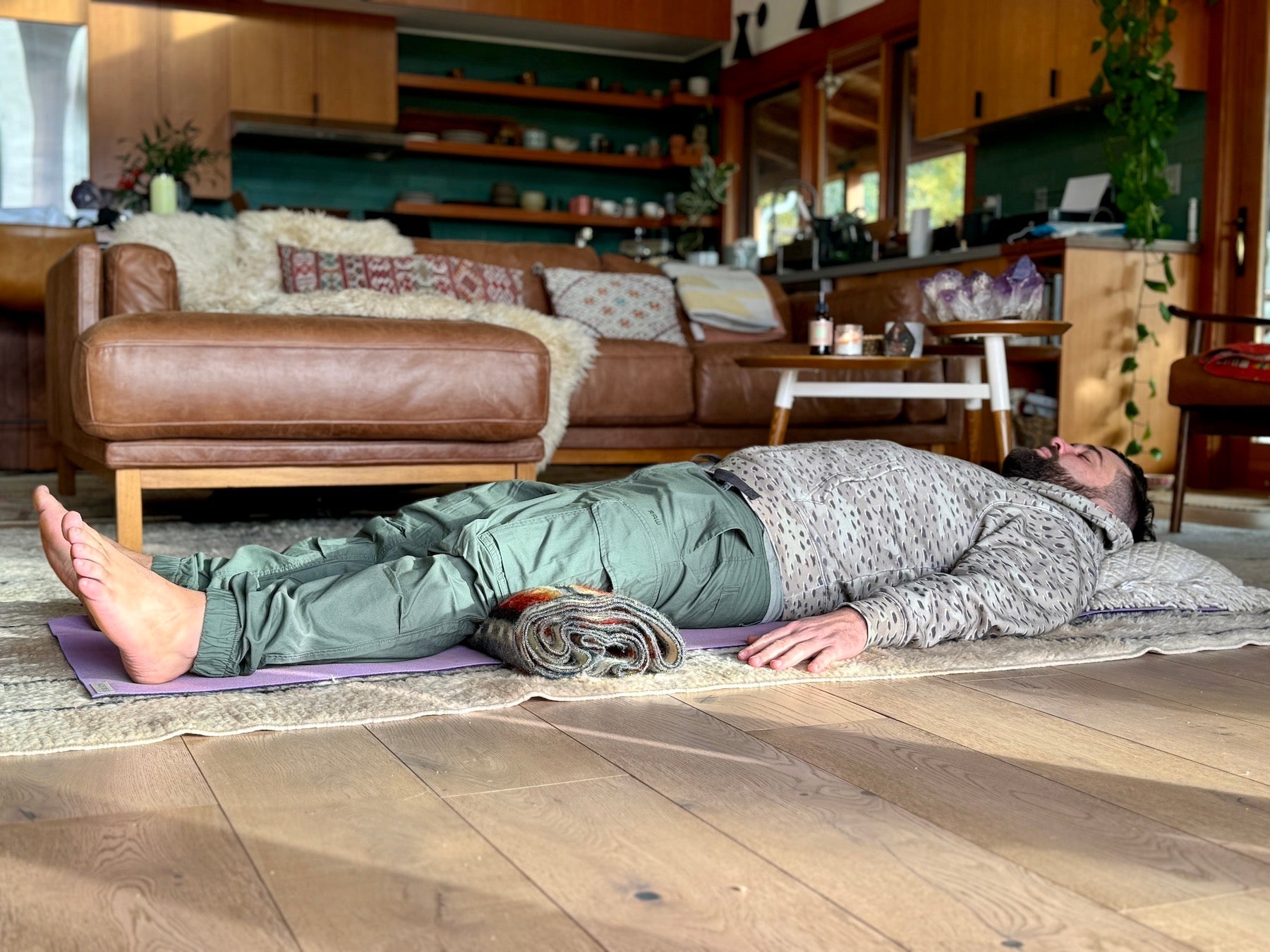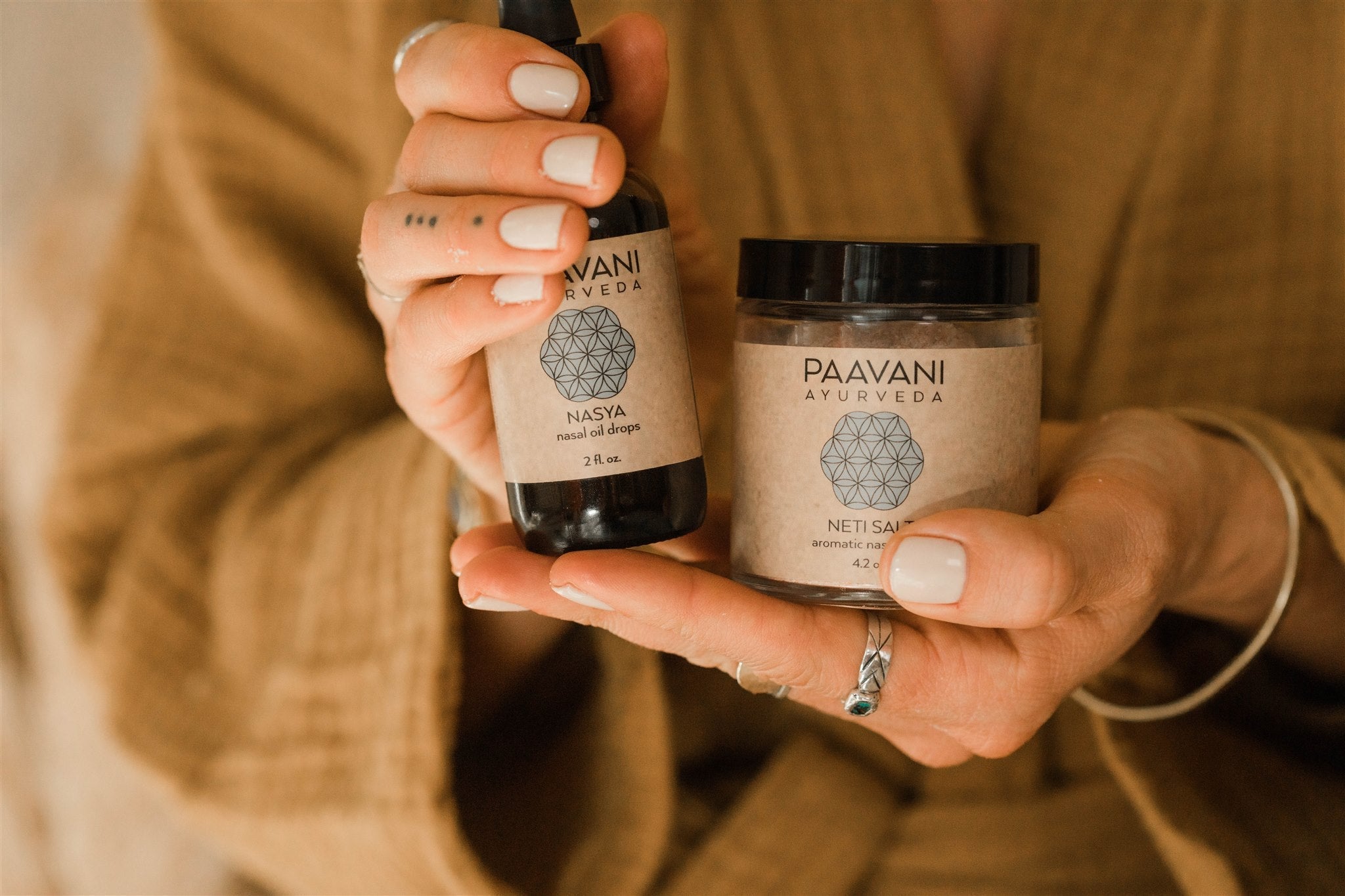
Yoga Nidra: A Guided Meditation Practice for Deep Rest & Relaxation
If you are looking for a relaxing, inexpensive and natural way to reduce stress, support your immune system, lower blood pressure, improve your sleep and increase your overall health and harmony, we recommend you make yourself comfortable and experience the Ayurvedic practice of Yoga Nidra. In this blog, we share insights into this unique guided meditation, including its origins, benefits and even a complimentary Yoga Nidra practice that you can enjoy from the comfort of your home. We hope this ancient Ayurvedic self-care ritual helps you reset and renew this month and beyond.
What is Yoga Nidra?
Yoga Nidra is a term that contains 2 Sanskrit words, ‘yoga’ means to attach, yoke, join or unite, and ‘nidra’ translates to sleep. Thus, Yoga Nidra is commonly called yogic sleep, as it brings practitioners into a state of conscious deep relaxation through a traditional guided meditation that typically lasts between 20 to 60 minutes. In other words, the body is asleep or at rest, yet the mind is awake or conscious and becomes an active participant in the healing process that can take place during a Yoga Nidra session.
Although there are references to Yoga Nidra in Indian classical texts like the Upanishads and Bhagavad Gita and the hatha yoga text the Hatha Yoga Pradipika, the modern-day practice of Yoga Nidra is said to have developed in the early twentieth century by Paramyogeshwar Sri Devpuriji. From there, different styles of Yoga Nidra arose. The style of Yoga Nidra we present in the free video below is inspired by the Bihar School of Yoga founded by Swami Satyananda Saraswati in the 1960s. As all yoga lineages were introduced to the West, Swami Saraswati learned the practice of Yoga Nidra from his teacher, the great Swami Sivananda and interestingly enough, we too learned Yoga Nidra from our Ayurvedic teacher, Dr. Marc Halpern, during our time at the Sivananda Yoga Farm in our local community of Grass Valley, CA. Needless to say, this meditation practice is near and dear to our hearts, and it is an honor to share this transformative practice with you.
Benefits of Yoga Nidra
It is said that 1 hour of Yoga Nidra is equivalent to 4 hours of sleep; however, we do not recommend practicing Yoga Nidra to replace sleep. Instead, allow the practice of Yoga Nidra to be an added restorative bonus for your body and mind. Furthermore, when one is guided in a Yoga Nidra practice, there is an opportunity for the body to completely rest while the mind remains conscious yet relaxed. In this yogic state, a plethora of benefits can occur, including:
Reduction in sympathetic (fight or flight) nervous system activity
Improved functioning of the immune system
Lowered blood pressure
A slower heart rate
Improved circulation
Pain relief
Reduced inflammation
Improved sleep quantity and quality
Improved mood
Improved digestion
Removal of energy blockages in the subtle body
In a nutshell, Yoga Nidra helps to reduce stress, and in this modern world, an all-natural, safe and effective practice to reduce stress levels is priceless. After all, stress can negatively impact the body’s systems from the immune, digestive, nervous and circulatory systems (to name a few). In turn, these disruptions can make the body more vulnerable and susceptible to an endless variety of detrimental, chronic and even fatal diseases.
More Ayurvedic Practices to Reduce Stress
Yoga Nidra & PTSD
Clinical Psychologist and co-founder of the International Association of Yoga Therapists, Richard C. Miller, has broadened the reach of Yoga Nidra through his founding of the Integrative Restoration Institute (iRest) in 2006. The institute offers Yoga Nidra/iRest in VA hospitals and military bases. At these locations, Richard Miller and his team research the benefits of Yoga Nidra/iRest on veterans returning home who are experiencing post-traumatic stress disorder (PTSD). Their research has shown that Yoga Nidra/iRest can decrease PTSD symptoms among veterans like phobias, insomnia, suicidal thoughts, depression and fatigue.
Preparing for Yoga Nidra
One of our favorite things about Yoga Nidra is its accessibility. All you need to practice is a comfortable space to lie in a supine position (think savasana or corpse pose), a yoga mat, blankets, a pillow and 30 minutes of your time. We recommend rolling out your yoga mat and padding it with an extra layer of blankets to ensure your back body is comfortable during the meditation. It is best to have a pillow to rest your head on and a rolled blanket or bolster to support your ankles and knee joints. You can also use blankets under the arms for extra cushion or even practice Yoga Nidra lying on your bed. Overall, the more relaxed you can make your body, the better! Being cozy and fully present for your Yoga Nidra experience is essential.

We hope you enjoy your at-home Yoga Nidra session! You may access this free Yoga Nidra video anytime you need to utilize this ancient Ayurvedic tool.





Leave a comment
This site is protected by hCaptcha and the hCaptcha Privacy Policy and Terms of Service apply.